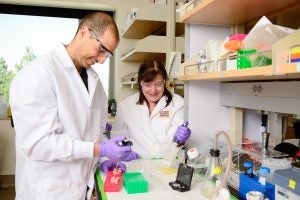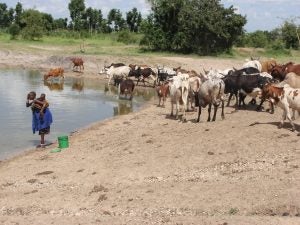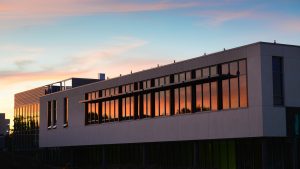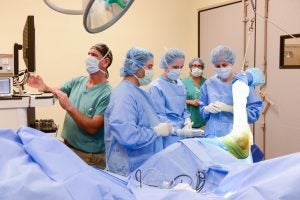“The important thing is not to stop questioning. Curiosity has its own reason for existing.” –– Albert Einstein
 We are privileged to work in an academic environment that promotes questioning of dogma and promotes scientific investigations to create new knowledge to benefit society. We also find ourselves in a time in our nation’s history in which the scientific method may be in disrepute by some of our political leaders. Ideology and “alternative facts” have captured headlines and represent a direct challenge to the role of science as a driver of policy making. As a scientific community, we must now more than ever, focus our attention on how we can contribute evidence-based facts to guide our nation’s direction if we are to contribute to solving the problems in our world. We must lead by example and create new knowledge to serve society and advance the health of animals, people, and the planet we all share.
We are privileged to work in an academic environment that promotes questioning of dogma and promotes scientific investigations to create new knowledge to benefit society. We also find ourselves in a time in our nation’s history in which the scientific method may be in disrepute by some of our political leaders. Ideology and “alternative facts” have captured headlines and represent a direct challenge to the role of science as a driver of policy making. As a scientific community, we must now more than ever, focus our attention on how we can contribute evidence-based facts to guide our nation’s direction if we are to contribute to solving the problems in our world. We must lead by example and create new knowledge to serve society and advance the health of animals, people, and the planet we all share.
 A good example was the recent UC Davis conference to discuss how academic institutions can help African nations meet the United Nations’ Sustainable Development Goals of access to clean energy and water, sustainable food production, and healthy lives and well-being. The conference brought together speakers that included Madame Mathilde Mukantabana, ambassador of the Republic of Rwanda to the United States, and Ms. Genevieve Maricle, former senior policy advisor to the U.S. ambassador at the U.S. Mission to the U.N. The conference featured our faculty throughout the day, including Dr. Woutrina Smith, who discussed “Linking Sustainable Development Goals Health Research and Livelihood Improvement: The HALI Project in Tanzania.”
A good example was the recent UC Davis conference to discuss how academic institutions can help African nations meet the United Nations’ Sustainable Development Goals of access to clean energy and water, sustainable food production, and healthy lives and well-being. The conference brought together speakers that included Madame Mathilde Mukantabana, ambassador of the Republic of Rwanda to the United States, and Ms. Genevieve Maricle, former senior policy advisor to the U.S. ambassador at the U.S. Mission to the U.N. The conference featured our faculty throughout the day, including Dr. Woutrina Smith, who discussed “Linking Sustainable Development Goals Health Research and Livelihood Improvement: The HALI Project in Tanzania.”


